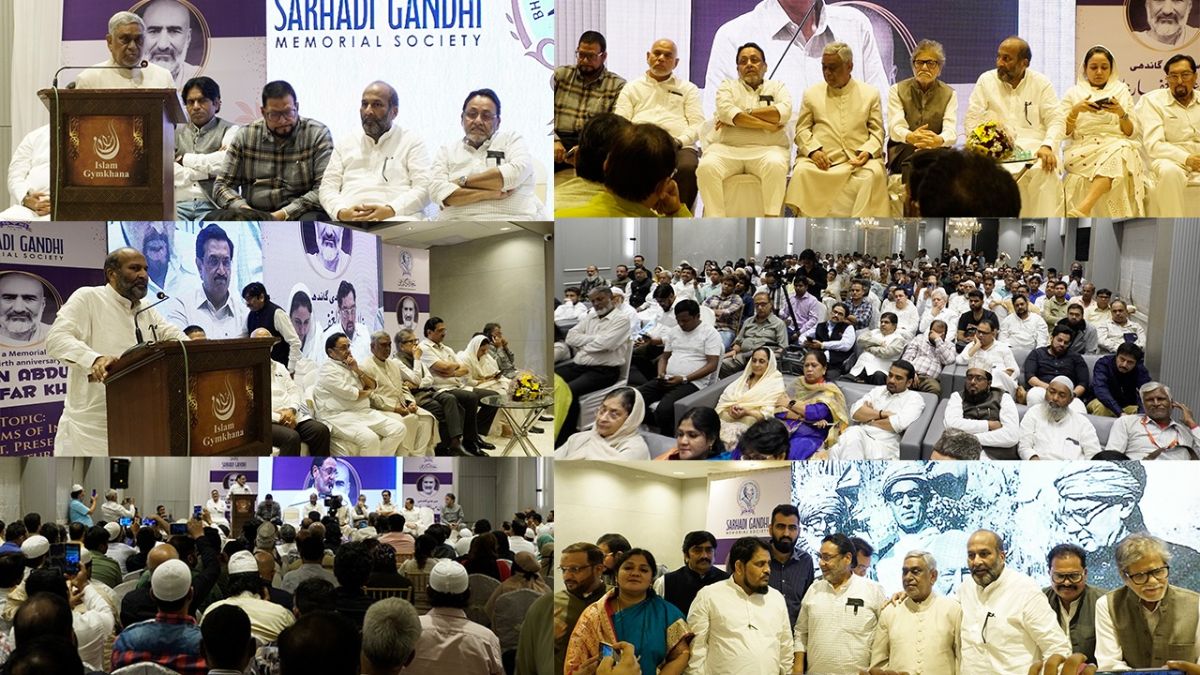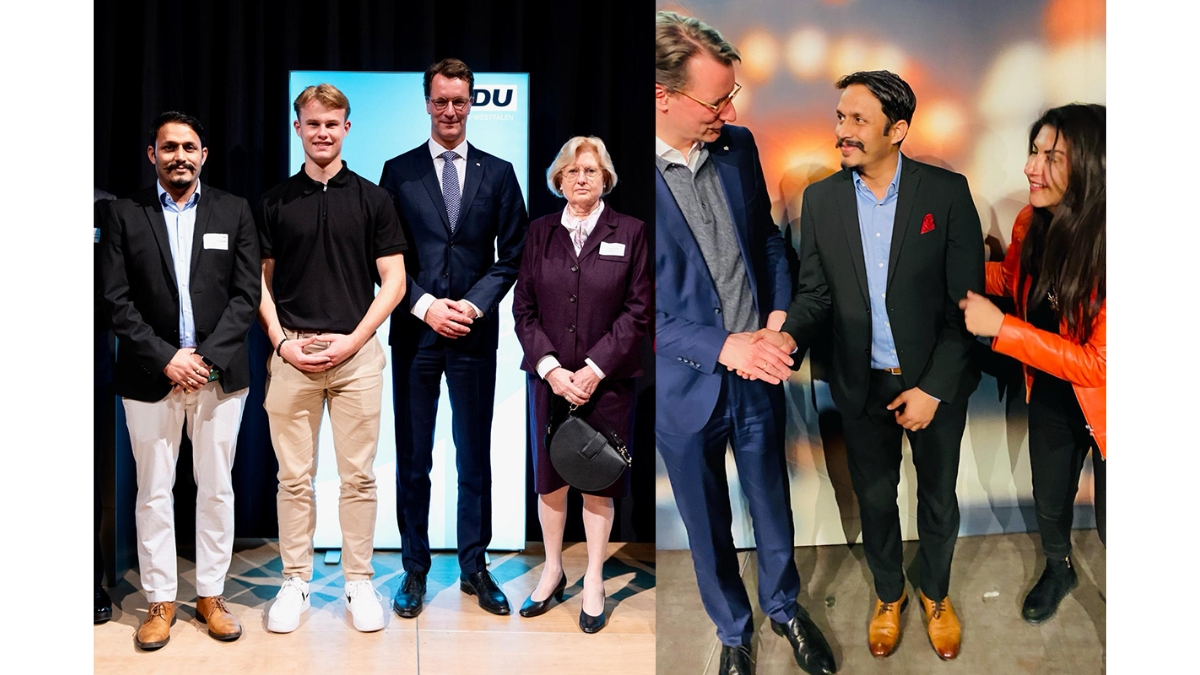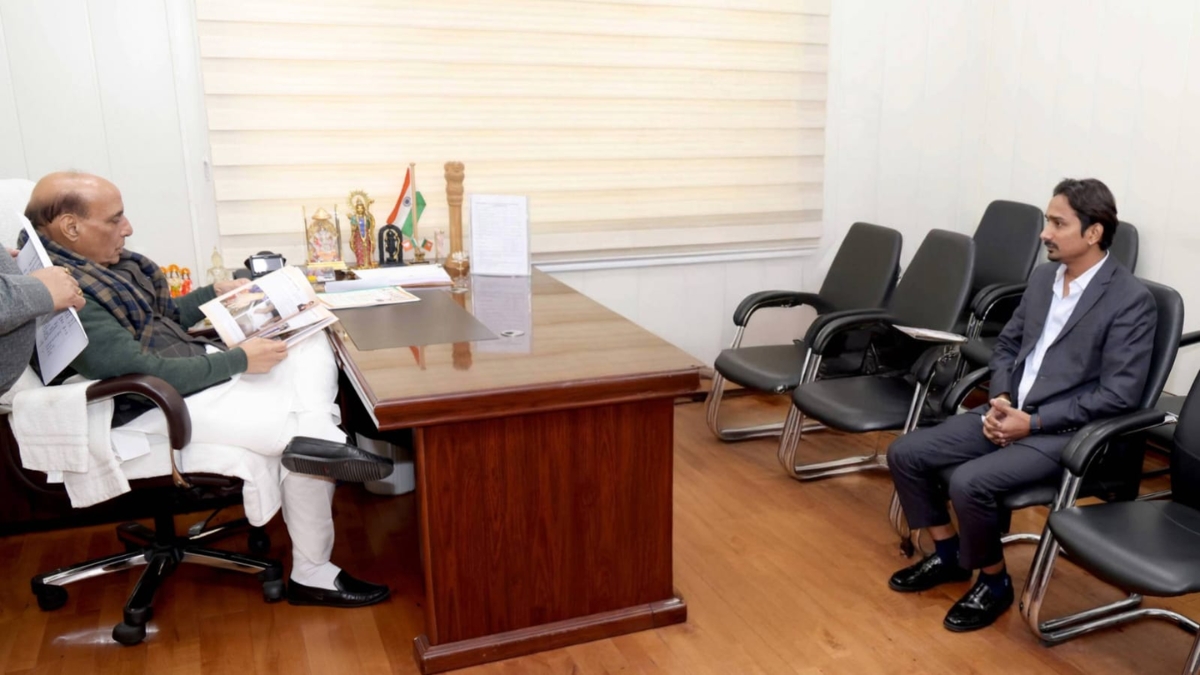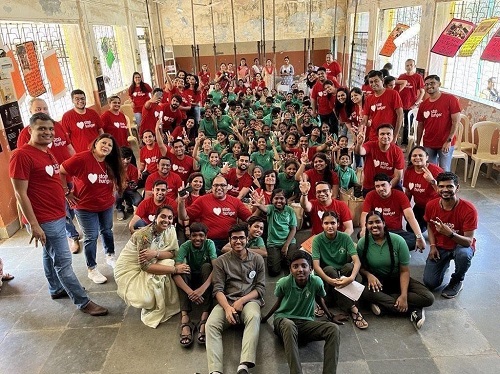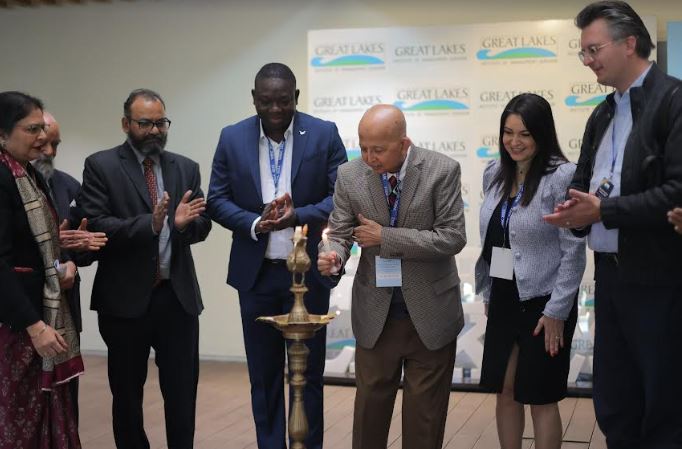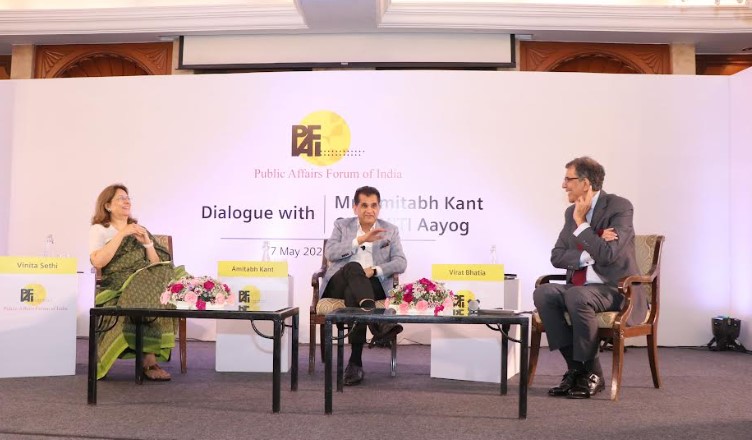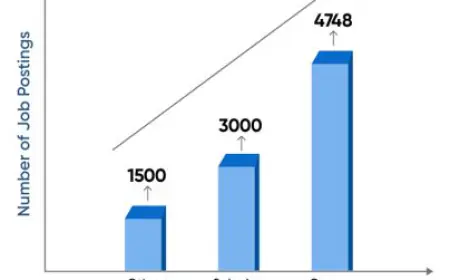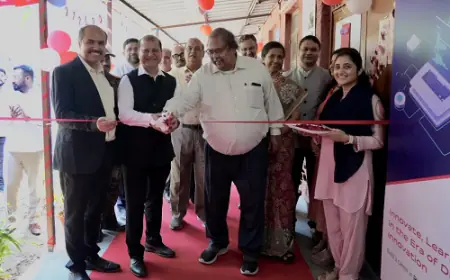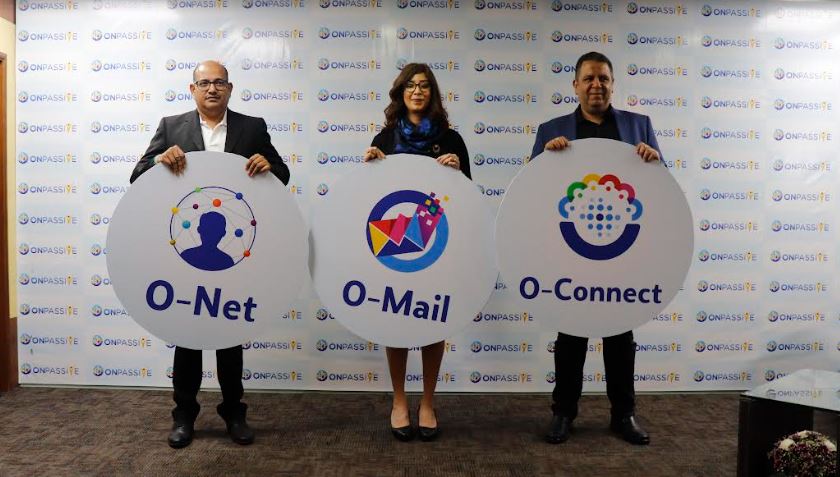TERI Policy Brief Launched at COP27 Calls for Making Oceans Critical to Climate Action
Highlighting the growing consensus on oceans being critical to climate negotiations, a new policy brief from The Energy and Resources Institute (TERI) launched at an United Nations Framework for Climate Change Convention (UNFCCC) official side event at COP27 in Sharm el-Sheikh on Wednesday, put forth the need for definite goals and indicators, along with institutional and enforcement mechanisms to steer ocean-climate action. TERI policy brief launched at UNFCCC official side event at COP27 The policy brief 'Oceans-Climate Interface: Implications for Global Commons based Climate Action' was launched at a session on 'Climate Action through Innovation, Implementation and Inclusive Multi-level Governance', organized by TERI and TERI School of Advanced Studies in collaboration with New Energy and Industrial Technology Development Organization - Japan, and Indigenous Information Network - Kenya at COP27. The knowledge document was produced as part of the COP27 Compass component of the Act4Earth initiative launched at the World Sustainable Development Summit in 2022. During the launch at Sharm el-Sheikh, Dr. Shailly Kedia, Senior Fellow, TERI, gave a presentation on the Act4Earth policy briefs on COP27 negotiations, internationalizing lifestyles for environment, inclusive energy transitions and ocean-climate interface. Oceans, which are the largest known carbon sink in the world, were largely omitted from the climate change negotiations until COP21 held in 2015. The policy brief focuses on the global commons of marine areas beyond national jurisdiction and climate action, and examines the interface between climate and ocean governance. "The oceans have long been neglected in the climate change negotiations, even though the UNFCCC clearly identified its role as the globe's most important carbon sink. The existing patchwork of agreements on the High Seas, including the UN Convention on Law of the Sea (UNCLOS), scarcely touch upon the role of the High Seas in relation to climate change," pointed out Dr. Prodipto Ghosh, Distinguished Fellow, TERI. The policy brief highlights the gaps in the climate-ocean interface and examines it through the lens of the global commons. Global commons are resource domains that do not fall under the jurisdiction of any single country, and their governance remains contentious since there is no single state or region having complete responsibility over it. Pointing to the gaps in the present climate regime, Dr. Kedia said, "Since climate negotiations are party-driven, climate actions in national jurisdictions have received larger attention and global commons including oceans have not been a focus area in terms of climate ambition and action." She underscored the need for greater interactions between the climate regime and ocean regime involving UNFCCC and UNCLOS. The knowledge document observes that problems of ocean equity are often not explicitly stated. "It is a hard fact that till date the distribution of benefits of oceans has been iniquitous and the ocean economy has primarily benefited wealthy nations and firms," it notes. While oceans have helped in slowing the rate of climate change by acting as a carbon sink, climate change impacts such as acidification, warming, changing circulation patterns and rising sea levels have deeply affected it as well. "The existing international agreements are marked by profoundly unequal treatment between developed and developing countries. It is necessary to move to a more comprehensive agreement or protocol under the UNFCCC that protects and helps enhance the role of the oceans on climate change, and sets out rights and obligations of countries. In doing so the UNFCCC principle of 'common but differentiated responsibilities and respective capabilities' must be fully respected if such an approach is to have a chance at success," asserted Dr. Ghosh. The need to strengthen the interface between climate regime and oceans regime is emphasized in the policy brief. "Presently, the interface largely involves the interactions between the Rio conventions. This needs to be expanded to include UNCLOS, Sustainable Development Goals (SDGs) and various environmental agreements - including those in the polar regions," it observes. Better integration of oceans and high seas in existing tools and processes under the UNFCCC, the need for reporting on global indicator frameworks to go beyond what is presently reported under Goal 14 of the SDGs, and creating avenues for engagement with local communities and vulnerable countries to bring them and their voices to global platforms are suggested by the authors of the policy brief. It also moots for improved ocean governance and management, addressing the knowledge gap in ocean governance, and clearly defining the role of th
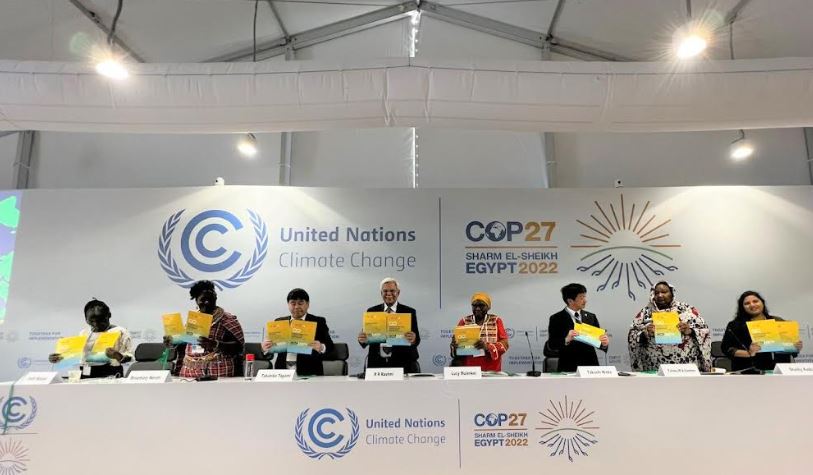
Highlighting the growing consensus on oceans being critical to climate negotiations, a new policy brief from The Energy and Resources Institute (TERI) launched at an United Nations Framework for Climate Change Convention (UNFCCC) official side event at COP27 in Sharm el-Sheikh on Wednesday, put forth the need for definite goals and indicators, along with institutional and enforcement mechanisms to steer ocean-climate action.
 |
TERI policy brief launched at UNFCCC official side event at COP27
The policy brief 'Oceans-Climate Interface: Implications for Global Commons based Climate Action' was launched at a session on 'Climate Action through Innovation, Implementation and Inclusive Multi-level Governance', organized by TERI and TERI School of Advanced Studies in collaboration with New Energy and Industrial Technology Development Organization - Japan, and Indigenous Information Network - Kenya at COP27.
The knowledge document was produced as part of the COP27 Compass component of the Act4Earth initiative launched at the World Sustainable Development Summit in 2022. During the launch at Sharm el-Sheikh, Dr. Shailly Kedia, Senior Fellow, TERI, gave a presentation on the Act4Earth policy briefs on COP27 negotiations, internationalizing lifestyles for environment, inclusive energy transitions and ocean-climate interface.
Oceans, which are the largest known carbon sink in the world, were largely omitted from the climate change negotiations until COP21 held in 2015. The policy brief focuses on the global commons of marine areas beyond national jurisdiction and climate action, and examines the interface between climate and ocean governance.
"The oceans have long been neglected in the climate change negotiations, even though the UNFCCC clearly identified its role as the globe's most important carbon sink. The existing patchwork of agreements on the High Seas, including the UN Convention on Law of the Sea (UNCLOS), scarcely touch upon the role of the High Seas in relation to climate change," pointed out Dr. Prodipto Ghosh, Distinguished Fellow, TERI.
The policy brief highlights the gaps in the climate-ocean interface and examines it through the lens of the global commons. Global commons are resource domains that do not fall under the jurisdiction of any single country, and their governance remains contentious since there is no single state or region having complete responsibility over it.
Pointing to the gaps in the present climate regime, Dr. Kedia said, "Since climate negotiations are party-driven, climate actions in national jurisdictions have received larger attention and global commons including oceans have not been a focus area in terms of climate ambition and action." She underscored the need for greater interactions between the climate regime and ocean regime involving UNFCCC and UNCLOS.
The knowledge document observes that problems of ocean equity are often not explicitly stated. "It is a hard fact that till date the distribution of benefits of oceans has been iniquitous and the ocean economy has primarily benefited wealthy nations and firms," it notes. While oceans have helped in slowing the rate of climate change by acting as a carbon sink, climate change impacts such as acidification, warming, changing circulation patterns and rising sea levels have deeply affected it as well.
"The existing international agreements are marked by profoundly unequal treatment between developed and developing countries. It is necessary to move to a more comprehensive agreement or protocol under the UNFCCC that protects and helps enhance the role of the oceans on climate change, and sets out rights and obligations of countries. In doing so the UNFCCC principle of 'common but differentiated responsibilities and respective capabilities' must be fully respected if such an approach is to have a chance at success," asserted Dr. Ghosh.
The need to strengthen the interface between climate regime and oceans regime is emphasized in the policy brief. "Presently, the interface largely involves the interactions between the Rio conventions. This needs to be expanded to include UNCLOS, Sustainable Development Goals (SDGs) and various environmental agreements - including those in the polar regions," it observes.
Better integration of oceans and high seas in existing tools and processes under the UNFCCC, the need for reporting on global indicator frameworks to go beyond what is presently reported under Goal 14 of the SDGs, and creating avenues for engagement with local communities and vulnerable countries to bring them and their voices to global platforms are suggested by the authors of the policy brief.
It also moots for improved ocean governance and management, addressing the knowledge gap in ocean governance, and clearly defining the role of the private sector in ocean governance.
Access the policy brief here:
About TERI
The Energy and Resources Institute (TERI), based in India, is an independent, multi-dimensional research organization with capabilities in policy research, technology development, and implementation. An innovator and agent of change in the energy, environment, climate change and sustainability space, TERI has pioneered conversations and action in these areas for nearly five decades. Headquartered in New Delhi, it has centres in six Indian cities, and is supported by a multi-disciplinary team of scientists, sociologists, economists, engineers, administrative professional and state-of-the-art infrastructure.
![]()



